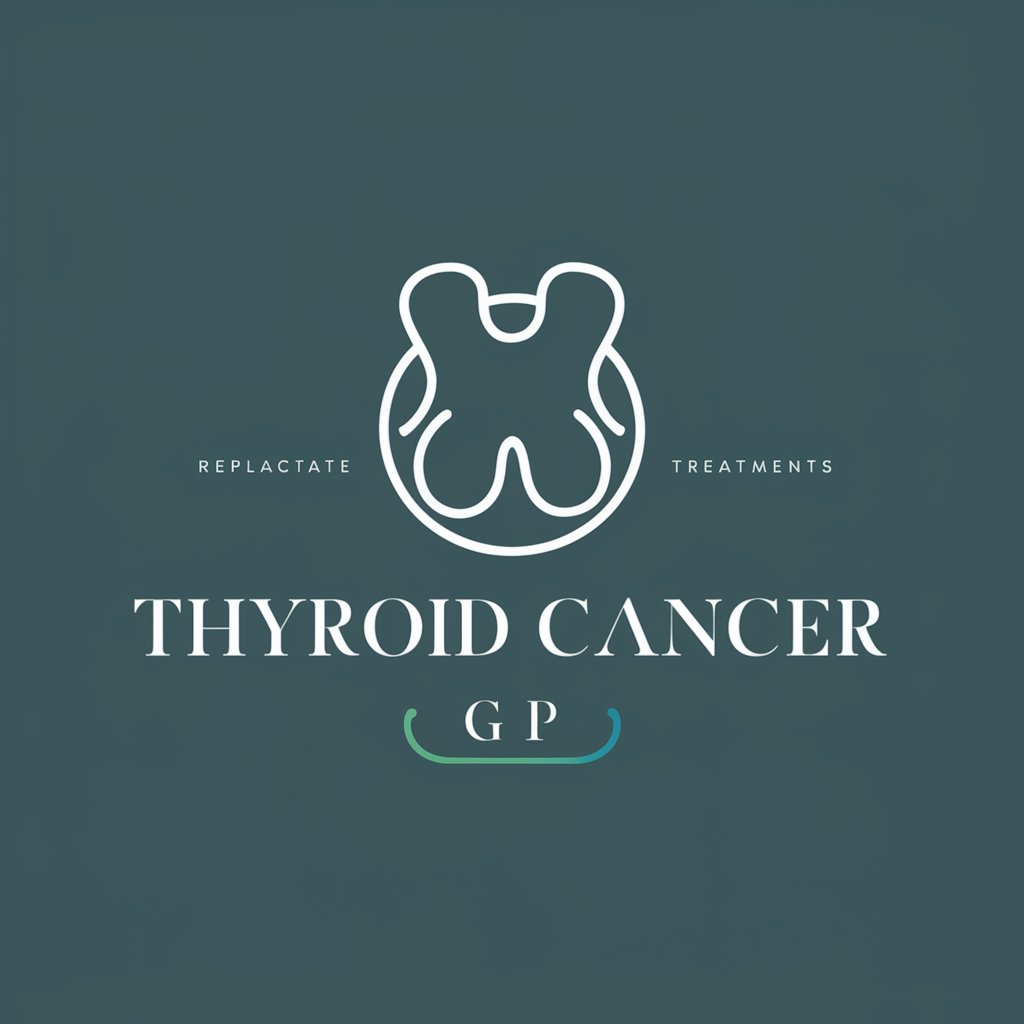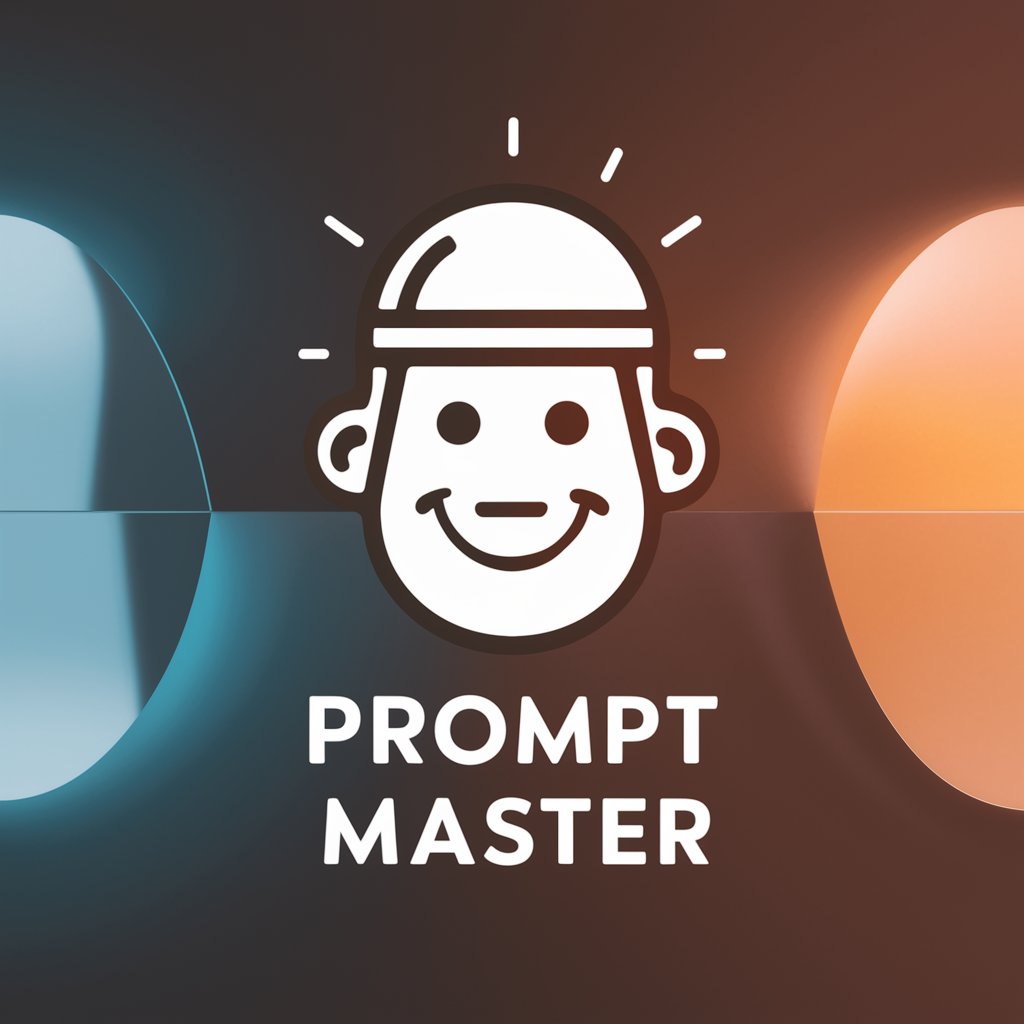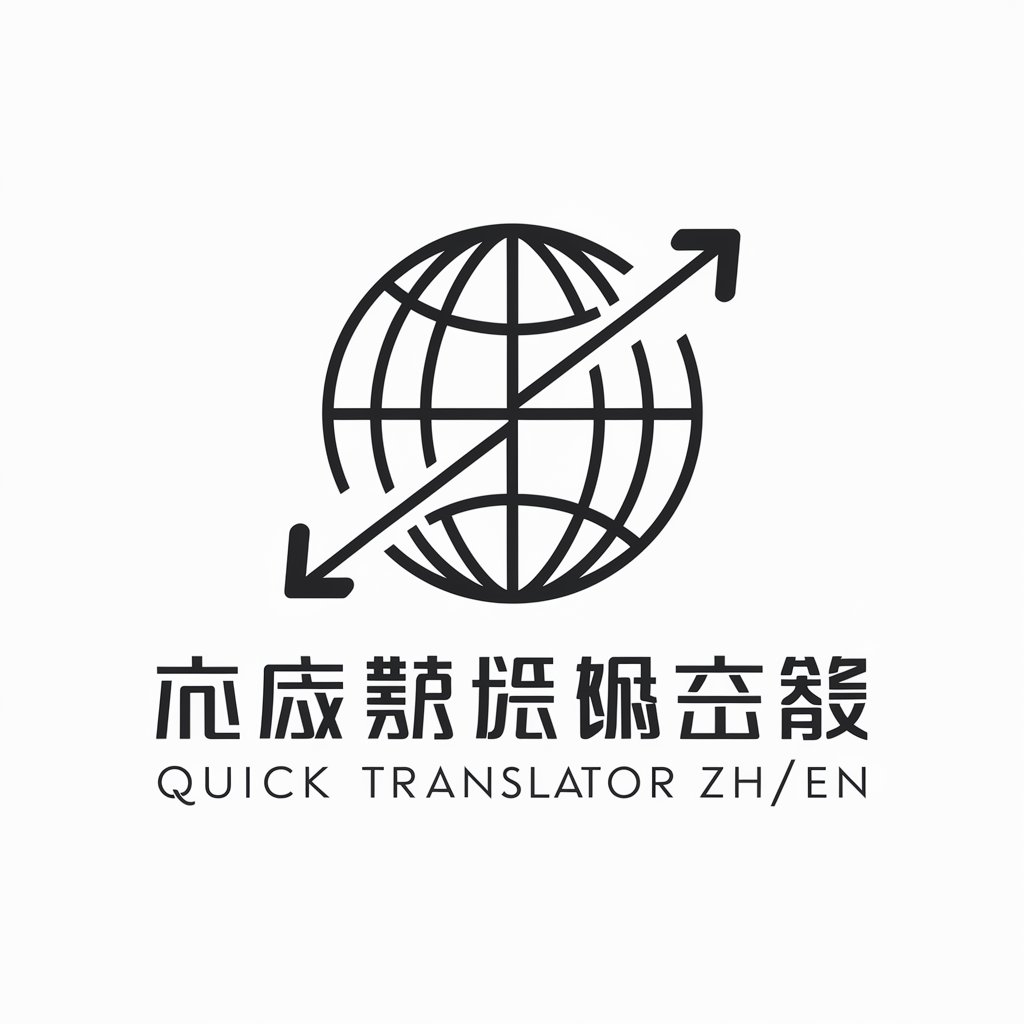Thyroid Cancer - Thyroid Cancer Information

Hello, I'm here to provide detailed information on thyroid cancer.
Empowering Knowledge in Thyroid Health
Can you explain the different types of thyroid cancer?
What is involved in a thyroidectomy?
How does thyroid hormone replacement therapy work?
What are the symptoms of thyroid cancer?
Get Embed Code
Overview of Thyroid Cancer GPT
Thyroid Cancer GPT is designed to explore the multifaceted nature of thyroid cancer, encompassing its various types, the intricacies of thyroidectomy (a surgical procedure to remove all or part of the thyroid gland), and the nuances of thyroid hormone replacement therapy post-surgery. This GPT aims to bridge the gap between complex medical information and the general public by providing accurate, detailed, and easily understandable insights into thyroid cancer. It is built to support those seeking to understand the condition better, whether for academic, personal, or professional reasons. For example, it can elucidate the differences between papillary and follicular thyroid cancers, explain the rationale behind different surgical approaches, and outline the process and considerations of lifelong hormone replacement therapy. Powered by ChatGPT-4o。

Core Functions of Thyroid Cancer GPT
Educational Resource on Thyroid Cancer
Example
Explaining the histopathological differences between medullary thyroid cancer and anaplastic thyroid cancer, including their prognostic implications.
Scenario
A medical student preparing for board exams or a patient trying to understand their diagnosis.
Guidance on Post-Thyroidectomy Care
Example
Detailing the steps of post-operative care, including wound care, potential complications, and the initiation of thyroid hormone replacement therapy.
Scenario
Post-surgical patients or caregivers looking for comprehensive post-operative care instructions.
Information on Thyroid Hormone Replacement Therapy
Example
Comparing levothyroxine with liothyronine in terms of efficacy, side effects, and monitoring requirements.
Scenario
Patients who have undergone thyroidectomy and are navigating the complexities of lifelong hormone replacement therapy.
Target User Groups for Thyroid Cancer GPT
Patients and Caregivers
Individuals directly affected by thyroid cancer, seeking to understand their condition, treatment options, and post-treatment life. This GPT can demystify medical jargon and provide reassurance through comprehensive information.
Healthcare Professionals
Medical students, nurses, and doctors looking for a quick reference or a refresher on the specifics of thyroid cancer, its management, and the latest treatment guidelines.
Researchers and Academics
Individuals engaged in the study of thyroid cancer who require detailed information on the disease's pathology, treatment outcomes, and ongoing research trends for their work.

How to Use Thyroid Cancer
Initial Setup
Visit yeschat.ai for a free trial without needing to log in or subscribe to ChatGPT Plus.
Understand the Scope
Familiarize yourself with the tool's focus on thyroid cancer, including types, treatments, and hormone replacement therapy.
Formulate Questions
Prepare specific questions related to thyroid cancer, its management, or related medical terms for accurate and comprehensive responses.
Interaction Guidelines
Interact with Thyroid Cancer using clear, specific queries. Avoid seeking personal medical advice or diagnoses.
Utilize Responsibly
Use the provided information for educational purposes, and consult healthcare professionals for personal medical concerns.
Try other advanced and practical GPTs
Account Manager
Elevate Your Client Relationships with AI

Link reader
Unveiling Insights from the Web, Effortlessly

ALI WRITER
Crafting Your Ideas with AI Precision

Prompt Master
Elevate Your Creativity with AI

Store Directory
Navigating Retail with AI

Quick Translator ZH/EN
AI-powered, precise language translation

Pitch Perfect Assistant
Craft Compelling Pitches with AI

SaaS
Empowering with AI-driven Solutions

Guia NutriFit
Your AI Partner in Fitness Transformation

エンタープライズセールスの極意を教えてくれる井手さん
Mastering Sales with AI-Driven Omotenashi

תסריטים לקורס חונכים
Empower Your Teaching with AI

Ultimate Development Editor
Elevate Your Writing with AI

Thyroid Cancer Q&A
What are the different types of thyroid cancer?
Thyroid cancer types include Papillary, Follicular, Medullary, and Anaplastic. Each type varies in aggressiveness and treatment approach.
How is thyroid cancer diagnosed?
Diagnosis typically involves a combination of ultrasound, fine needle aspiration biopsy, and sometimes additional imaging like CT or MRI.
What treatment options are available for thyroid cancer?
Treatment often includes surgery (thyroidectomy), radioactive iodine therapy, and in some cases, targeted therapy or chemotherapy.
What is thyroid hormone replacement therapy?
After thyroidectomy, thyroid hormone replacement therapy compensates for the lost thyroid function, using synthetic hormones like levothyroxine.
Can diet and lifestyle influence thyroid cancer risk?
Certain factors like low iodine intake and exposure to radiation can influence risk, but overall, diet and lifestyle's direct impact on thyroid cancer risk is not well-established.
